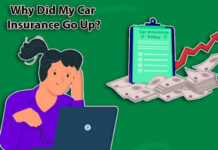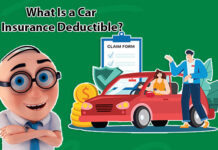Stafford Loan
A Stafford Loan was a type of student loan that was obtainable from the United States Department of Education by qualified students who were...
Best Home Equity Loan Lenders of 2025
Best Home Equity Loan Lenders of 2025 - A home equity loan, which is also known as a second mortgage, permits homeowners to borrow...
Telematics Insurance
Telematics Insurance - A lot of the best car insurance companies provide telematics programs, but no two are exactly alike. In this article, you...
Property Insurance
Are you looking for insurance that can cover your property? If yes, property insurance should be the best choice for you. Almost all home...
Why Did My Car Insurance Go Up?
Are you a safe driver and have not switched insurance policies or bought a new car, and your rate still goes up? Your car...
What Is a Car Insurance Deductible?
What Is a Car Insurance Deductible - Have you ever stopped around for car insurance at any point in time? Or you don’t know...
What Is Indemnity Insurance?
Have you heard of the term "indemnity," and are you now wondering what indemnity insurance means? If yes, then you are on the right...
Direct Consolidation Loan
Direct Consolidation Loan - Are you a student who graduated with more than one student loan? If yes, then your solution is here. Falsifying...
Best Jewelry Insurance Companies Of 2025
Best Jewelry Insurance Companies Of 2025- Do you have good-looking jewelry, such as an engagement ring or a luxury watch? It is very important...
What is a Revolving Loan Facility?
What is a Revolving Loan Facility? Does your business need to pay any unexpected bills, fill a cash flow gap, or seize a business...










